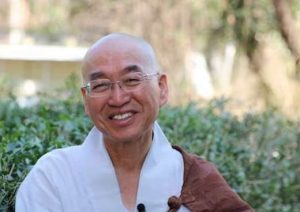Buddhist precepts are often discussed in moral terms. The five precepts of a layperson in particular provide a firm foundation in ethical conduct. For instance, the first precept states that we should not kill living beings. The second is that we should not take what is not given. The third is that we should abstain from sexual misconduct. The fourth is that we should abstain from false speech. Finally, the fifth precept is to abstain from the state of carelessness caused by alcoholic drinks and other drugs. These five trainings provide the moral framework in which a lay person may practice the Buddha’s teachings.
However, on certain occasions practitioners, especially of Theravada Buddhism, may also undertake three further precepts, thereby making a total of 8 precepts. The first of these extra precepts is to abstain from eating after midday. The second is to abstain from watching entertainments or adorning oneself with perfumes or decorations. The third precept is to sleep on a low bed, i.e. one that is not luxurious. In addition to these three additional precepts, the precept concerning the abstention from sexual misconduct is replaced with a vow of celibacy. In the Theravada tradition, these extra
rules are still called precepts (sila) or ways of training (sikkhapada) and, at first sight, are not differentiated in nature from the basic five precepts enumerated above. Therefore, since the five precepts are moral rules, it is quite common for practitioners to also view these extra rules as related to morality too. One might conclude then that not following a celibate lifestyle is somehow less moral than following a celibate lifestyle. Or perhaps one might believe that it is less moral to sleep on a comfortable bed than on an uncomfortable bed.
However, such views miss an important distinction in the rules outlined by the Buddha. The commentaries explain that, while the first five rules can be considered moral regulations, the subsequent rules are ascetic regulations, rather than moral ones, and are intended simply to harness energy for spiritual contemplation and practice. This reasoning also applies to the rules and regulations that monks and nuns subscribe to when they become ordained. Many of the precepts that they adhere to are not moral, in the sense they do not reflect any ethical position. For instance, shaving the head is not in itself an ethical act and is merely an ascetic practice of renunciation.
These ascetic practices serve to provide the correct conditions for meditation and contemplation. They relate to one’s own spiritual practice directly. The five moral practices however can be considered ethical since they relate to the harm we may do to others. Killing, stealing, lying and sexual misconduct all do harm to others. The abstention from intoxication too is said to be a moral precept since, when we are drunk, we are more likely to break the previous four precepts. Therefore, these practices are ethical since they are discussed in terms of the possible harm done to others. Many of the rules of monks and nuns though cannot be considered ethical in this way. This is highlighted by the Buddha himself in the Dhammapada, where he clearly perceives a separation between moral qualities and the act of wearing a robe:
“The man who wears the yellow-dyed robe but is not free from stains himself, without self-restraint and integrity, is unworthy of the robe.
But the man who has freed himself of stains and has found peace of mind in an upright life, possessing self-restraint and integrity, he is indeed worthy of the dyed robe.”
Within these verses, it is evident that the Buddha thought that ideally morality and the wearing of monastic robes should go together. However, here, is it clear that the Buddha does not see the wearing of robes as an intrinsically moral act and is warning his monks and nuns against complacency with respect to their moral behaviour. This distinction is important in my own practice since it reminds me that, no matter how long I can meditate for or how many luxurious things I can abandon, the true test of ethical conduct exists in my relationship with others and not.















